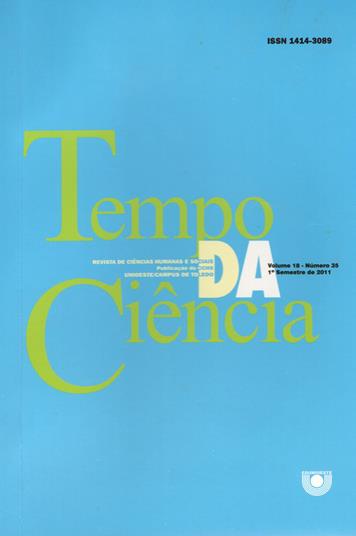A TEATRALIDADE DO DIREITO E DO PODER NA LITERATURA DE KAFKA
DOI:
https://doi.org/10.48075/rtc.v18i35.8998Palavras-chave:
Kafka, teatralidade, literatura.Resumo
A busca por uma interpretação diferenciada do Direito e do poder, longe dastradicionais definições institucionais, nos leva a arte de maneira abrangente. Tanto a literaturacomo o Teatro são, em essência, artes que possibilitam um entendimento das relaçõessociais como processos atemporais e cíclicos. Dentre tantos bons trabalhos, a obra de FranzKafka é, sem dúvida, um grande exemplo, seja por apontar os ditames do Estado, as estruturasburocráticas e demais relações de poder, ou mesmo por apresentar os indivíduos enquantosujeitos de um tempo sem liberdade e sem autonomia frente do sistema econômico. Seusromances e contos, indistintamente, abordam temas comuns a todas as sociedades modernas,ou seja, a dualidade entre o ser e o dever ser, o enquadrar-se em uma ordem estabelecida ouser condenado por coerções dispersas ou concentradas. A literatura kafkiana revela a vidacotidiana a partir de elementos teatrais, a partir de símbolos compreendidos e outros nãodecifrados, de personagens híbridos. Uma literatura que revela, em essência, a vida social eseus percalços. A teatralidade da literatura de Kafka ainda é revelada pelo engajamento, porpropiciar ao leitor uma cumplicidade com a obra, seja por se colocar como ator principal,coadjuvante ou mesmo espectador atento do drama apresentado. Este artigo tem comoobjetivos analisar os aspectos teatrais da obra de Kafka e, a partir dos mesmos, desvelar einterpretar as relações de poder em seus contos e romances.Downloads
Publicado
Como Citar
Edição
Seção
Licença
Aviso de Direito Autoral Creative Commons
Política para Periódicos de Acesso Livre
Autores que publicam nesta revista concordam com os seguintes termos:
1. Autores mantém os direitos autorais e concedem à revista o direito de primeira publicação, com o trabalho simultaneamente licenciado sob a Licença Creative Commons Attribution que permite o compartilhamento do trabalho com reconhecimento da autoria e publicação inicial nesta revista.
2. Autores têm autorização para assumir contratos adicionais separadamente, para distribuição não-exclusiva da versão do trabalho publicada nesta revista (ex.: publicar em repositório institucional ou como capítulo de livro), com reconhecimento de autoria e publicação inicial nesta revista.
3. Autores têm permissão e são estimulados a publicar e distribuir seu trabalho online (ex.: em repositórios institucionais ou na sua página pessoal) a qualquer ponto antes ou durante o processo editorial, já que isso pode gerar alterações produtivas, bem como aumentar o impacto e a citação do trabalho publicado (Veja O Efeito do Acesso Livre).
Licença Creative Commons
Esta obra está licenciada com uma Licença Creative Commons Atribuição-NãoComercial-CompartilhaIgual 4.0 Internacional, o que permite compartilhar, copiar, distribuir, exibir, reproduzir, a totalidade ou partes desde que não tenha objetivo comercial e sejam citados os autores e a fonte.

